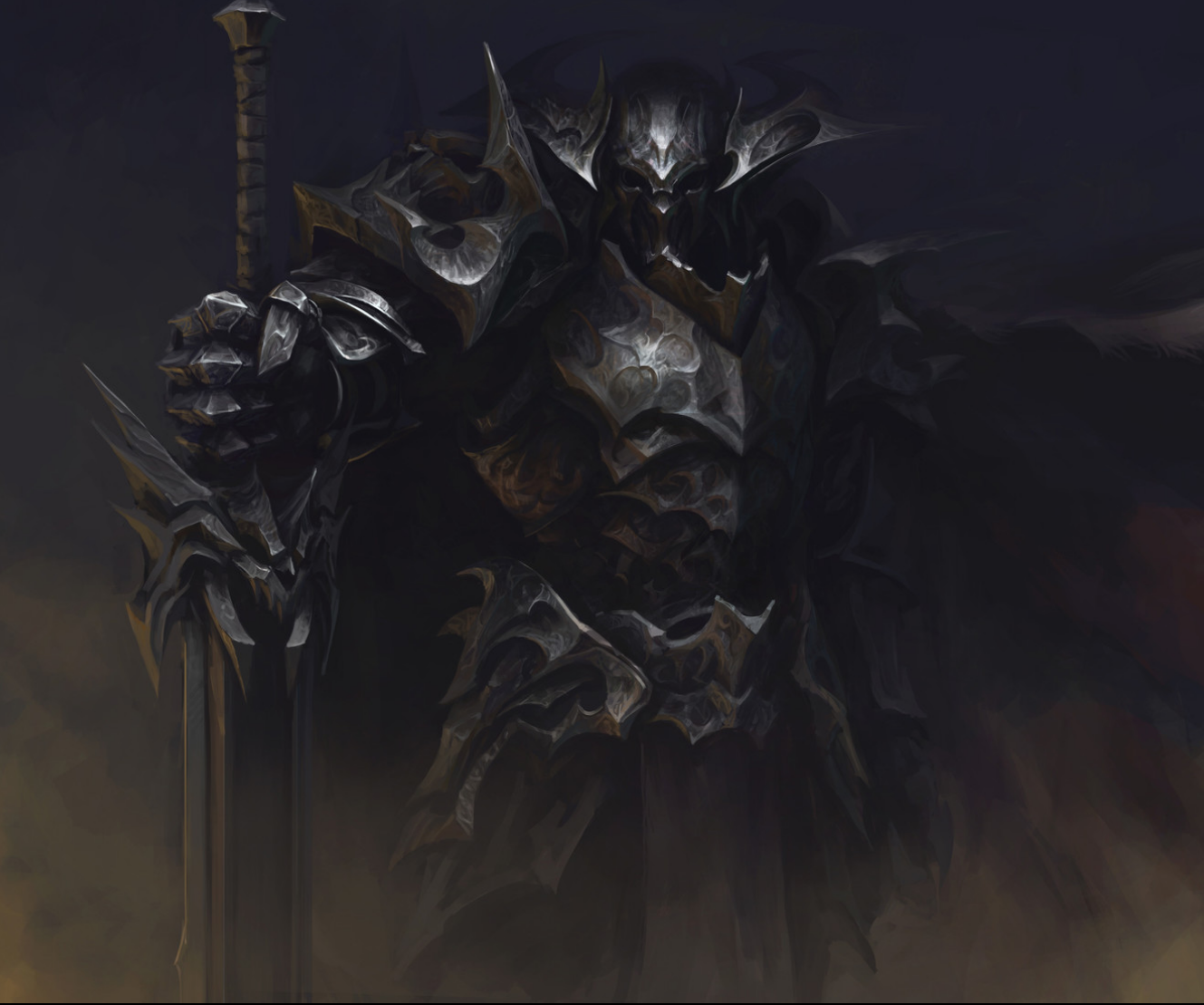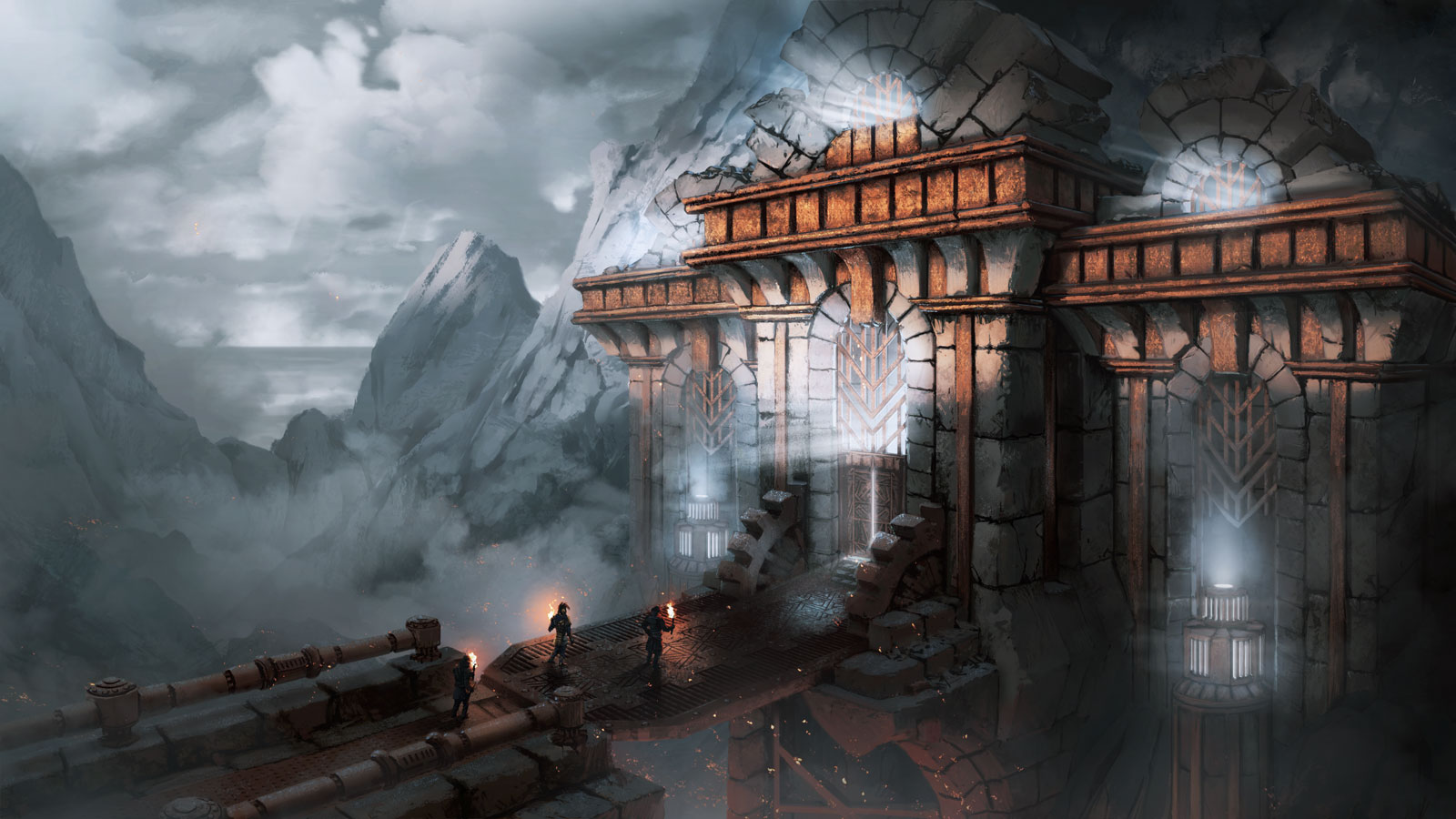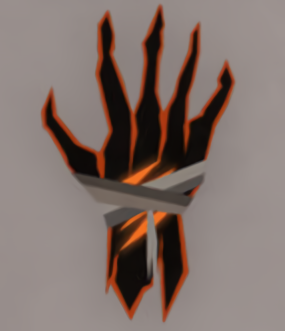Raxan, the Dissonant
(a.k.a. Bozuk-Irade)
"The one known as Bozuk-Irade is dead. Do not confuse me with him, or you will find yourself in much the same predicament."Raxan, also known as Bozuk-Irade (called such in Louistas or Ghal'Guun), is the hobgoblin god of conquest, discipline, self-reflection, and respect. He embodies the courage and bravery soldiers exhibit during warfare and the willpower to resist bloodlust. Under him, the wild are tamed, the weak are strengthened, and the fearful are emboldened. Those who have not seen the terrors of war pray to Raxan for the perseverance to withstand it, and commonfolk pray to him in the hopes he will shield their families’ homes from destruction. Since his ascension, Raxan has always had a profound presence of mind and stubbornness that drove him to take on challenges much bigger than himself. Like most members of the goblinoid pantheon, Raxan admonishes cowardice, though he is considerably less harsh compared to his former peers. His arduous times among the goblinoid pantheon has opened his heart to the cowardly and weak, and he has since taken on the role of a patient yet stern mentor. Raxan is fond of festivals and typically manifests avatars during them, always appearing as a gray or black suit of armor that never gleams. The horns adorning his helmet are striking and intimidating, befitting his role as a leader. When he speaks, his voice is deep, clear, and almost booming. He carries himself with self-respect, pride, honor, and authority, never tolerating sloth and exhibiting a fiery temper when disobedience tries his patience.- Raxan abandoning his past
Raxan's Influence
Raxan’s will is said to reside in the hearts of all warriors, strengthening when in the heat and haze of battle and vanishing when the final blow is dealt. For war captains, Raxan represents the trust they share with their soldiers, the unwavering faith in life or death that victory and glory are assured. When the call to war beckons, Raxan reminds his followers to remember the people—the nation that they fight to protect. Those who fight only for themselves in war are to be treated with scorn. Motivations for war vary, and Raxan has seen countless perspectives in the battles he has overseen—most being those his people have started. In Raxan’s eyes, war is cruel, and it turns the unsuspecting many that facilitate it into war machines. Raxan believes that contentedness with murder is a slippery slope to a massacre. To never be content with bloodshed, to always show self-restraint when necessary, is the true mark of a warrior. A warrior is not a warrior for the battles he participates in but for the means he goes to battle and the struggles he endures. A man who draws his blade to sate thirst for vengeance or anger is a murderer, not a warrior. Recently, however, another interpretation of Raxan’s word has emboldened commonfolk as well. The poor and needy who tirelessly work until their hands are raw and their bodies beg for rest have a true warrior’s spirit. The young who stand at the gates of their town in the way of an oncoming army to protect their families have a true warrior’s heart. The men who charge into battle to free another nation’s subjugated people have a true warrior’s compassion. Strength is relative; strength is universal. Never let this strength cloud judgment. Power is meant to protect oneself and others, not harm them.Worshipping Raxan
Raxan believes actions speak louder than words. Outside of times of great peril or moments before a newly-formed army rushes out to battle, Raxan does not often speak directly with his followers. Those who desire Raxan’s favor must make themselves someone worthy of honor. They need not have held a blade in their life, but they must show they have the strength to do so when the time calls for war. Churches have provided explanations as to why Raxan’s depictions look so fearsome compared to his peaceful temperament, and it is widely believed that what mortals perceive as Raxan’s armor is a representation of the necessary evils that come with war. Soldiers must go against their morals for the sake of doing good, even if it means committing evils. The greater good should always be one’s primary concern, even if the path to that greater good is painful. One who never strays from this path of clarity becomes the closest to Raxan.Myths of Raxan
Child of Warfare.
Show spoiler
Raxan’s First Love. Long ago, the summer region of Louistas, led by the Marhu (goblin for “emperor”), was thrown into war due to the subservient kings’ greedy natures. This myth holds that the descendants of the Marhu eventually formed the upper class of Prostesa’s Ghal’Guun, where an individual from one of the Rhu’Shen branch families captured Raxan’s attention with his profound sense of righteousness and goodwill. Raxan agreed to train this hobgoblin in the hopes they would use his power to bring humility and mercy to Ghal’Guun’s cruel society. As a result of Raxan’s actions, a society devoted to his word left Ghal’Guun instead of staying to remake it, fleeing to Illwurn, where a new hobgoblin society thrives.
Show spoiler
In this myth, Raxan (still named Bozuk-Irade), on behalf of Maglubiyet visited Ghal’Guun to discuss with the current Lhesh plans to overtake Quina, Prostesa’s northwestern country. Lhesh Mekladomi Rhu’Shen had fallen in love with him, yet she had been countlessly rebuffed by Raxan. However, Raxan’s superior saw an opportunity to strengthen the troops of Ghal’Guun with divine blood, and it had long been decided that Raxan needed to see use beyond simply that of a tool. And so, Raxan found himself married to her, though it was tumultuous and doomed to fail, as Raxan could not bring himself to love her. Mekladomi was later killed by an undiscovered party, an act that turned Raxan into a scapegoat. There have been rumors of a lost child of Raxan among Ghal’Guun, though it has not been named and is likely dead.
Divine Symbols & Sigils
Tenets of Faith
- When war beckons, answer.
- Remember who you fight for; never fight for vengeance or for yourself.
- If the path to peace shows itself, follow it. Seek it, even if it eludes you.
- Never become content with bloodshed. Practice diplomacy.
- Let your actions speak for you.
- Protect those who cannot protect themselves, and do so with pride.
- Remember that your soul is to the Prime Material. Protect it, and it will protect you.

Divine Classification
Intermediate Deity
Alignment
Chaotic Good
Honorary & Occupational Titles
The Voiceless Veteran
The Traitorous
The Dissonant
The Lesser
The Traitorous
The Dissonant
The Lesser
Currently Held Titles
Children
Death; Tempest; Peace; War




Comments